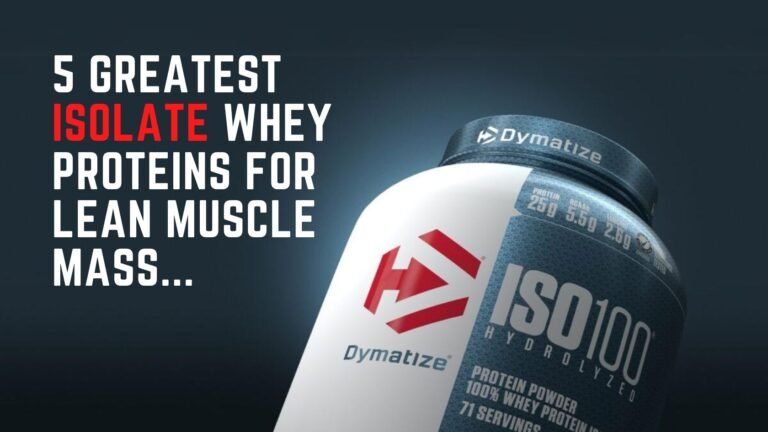9 B2B Event Marketing Tips Every Event Organizer Should Know
In the dynamic world of B2B marketing, events continue to play a crucial role in connecting businesses, fostering relationships, and driving growth. However, with the proliferation of digital channels and changing customer behaviors, event organizers need to adopt strategic marketing approaches to ensure their events stand out and achieve their objectives. Whether you are organizing a conference, trade show, workshop, or seminar, implementing effective B2B event marketing strategies can significantly impact your event’s success. Here are nine B2B event marketing tips to help you maximize your event’s impact and ROI.
1. Define Clear Objectives and Audience
Before diving into event planning and marketing activities, it is imperative to define clear objectives and identify your target audience. Understanding what you aim to achieve through the event – whether it’s lead generation, brand awareness, networking, or thought leadership – will guide your marketing strategies and tactics. Similarly, knowing your target audience’s demographics, interests, pain points, and motivations enables you to tailor your messaging and content to resonate with them effectively.
2. Leverage Multi-channel Promotion
Effective event marketing involves reaching your target audience through multiple channels to maximize visibility and engagement. Utilize a mix of digital channels such as email marketing, social media platforms (LinkedIn, Twitter, Facebook), your company website, industry forums, and paid advertising (Google Ads, social media ads) to promote your event. Craft compelling and consistent messaging across these channels to create anticipation and drive registrations.
3. Create Compelling Content
Content plays a pivotal role in attracting and engaging your target audience throughout the event marketing cycle. Develop high-quality content pieces such as blogs, whitepapers, infographics, videos, and webinars that offer valuable insights, industry trends, expert opinions, and solutions to relevant challenges. Incorporate event-specific content highlighting speakers, agenda highlights, workshops, and networking opportunities to showcase the event’s value proposition.
4. Implement Targeted Email Campaigns
Email marketing remains a powerful tool for engaging with potential attendees, nurturing leads, and driving event registrations. Segment your email list based on criteria such as industry, job title, previous event attendance, and engagement levels to deliver personalized and relevant content. Craft compelling email invitations, reminders, updates, and post-event follow-ups to keep your audience informed and engaged throughout the event lifecycle.
5. Partner with Influencers and Industry Experts
Collaborating with influencers and industry experts can significantly amplify your event’s reach, credibility, and attendee engagement. Identify thought leaders, influencers, and relevant industry associations within your niche and establish partnerships for co-promotion, content creation, speaking engagements, or hosting pre-event webinars. Leveraging their networks and expertise can enhance your event’s visibility and attract a qualified audience.
6. Optimize Event Landing Pages
Your event landing page serves as a critical touchpoint for potential attendees, providing essential information and driving registrations. Optimize your landing page for search engines (SEO) by incorporating relevant keywords, compelling headlines, clear CTAs (Call to Action), intuitive registration forms, and engaging visuals (videos, testimonials, speaker profiles). Ensure mobile responsiveness and fast loading times to deliver a seamless user experience across devices.
7. Encourage Early Bird and Group Registrations
Incentivize early registrations and group bookings by offering discounted pricing, exclusive access to workshops or networking sessions, bundled packages, or limited-time offers. Highlight the benefits of early commitment, such as securing preferred session slots, accessing premium content, and maximizing networking opportunities. Leverage scarcity and urgency in your promotional campaigns to prompt action from potential attendees.
8. Leverage Social Media Engagement
Harness the power of social media platforms to create buzz, foster conversations, and drive engagement before, during, and after your event. Create dedicated event hashtags, share sneak peeks, behind-the-scenes content, speaker insights, attendee testimonials, and interactive polls or contests to encourage participation and sharing. Engage with your audience in real-time during the event through live tweets, Q&A sessions, and social media updates to enhance the overall attendee experience.
9. Measure, Analyze, and Iterate
Post-event analysis is crucial for evaluating your event’s success, identifying areas for improvement, and informing future marketing strategies. Measure key metrics such as registration numbers, attendance rates, engagement levels, lead generation, social media reach, and post-event surveys or feedback. Analyze data insights to understand attendee behavior, content effectiveness, marketing ROI, and overall event impact. Use these insights to refine your strategies, enhance attendee experiences, and optimize future events for greater success.
Conclusion
Effective B2B event marketing requires strategic planning, targeted promotion, compelling content, and continuous optimization to drive meaningful engagement, generate leads, and achieve desired business outcomes. By defining clear objectives, leveraging multi-channel promotion, creating valuable content, engaging influencers, optimizing digital assets, incentivizing registrations, leveraging social media, and analyzing performance metrics, event organizers can maximize their event’s impact and ROI in the competitive B2B landscape. Implement these nine event marketing tips to elevate your B2B events and establish a lasting impact on your target audience and industry stakeholders.






